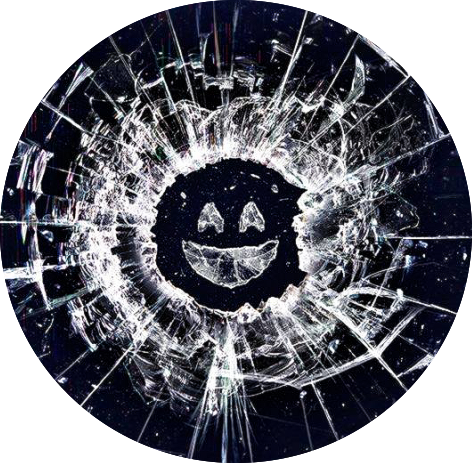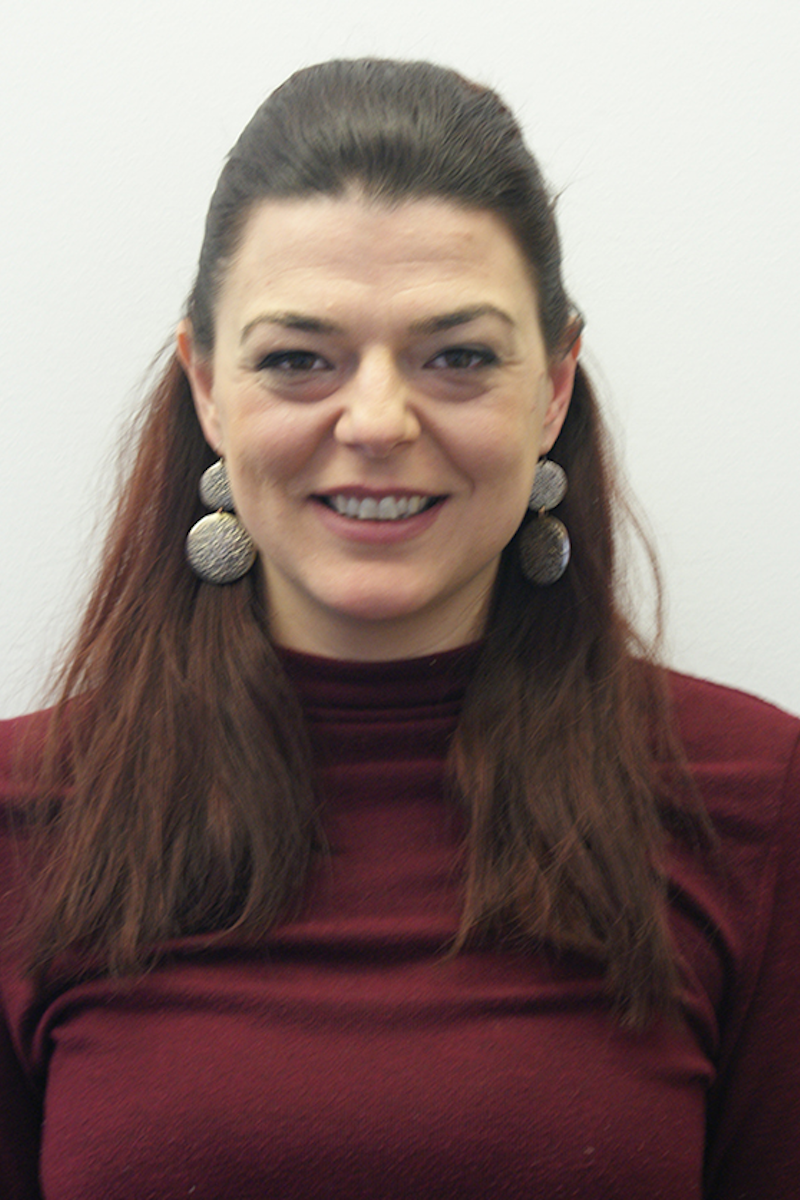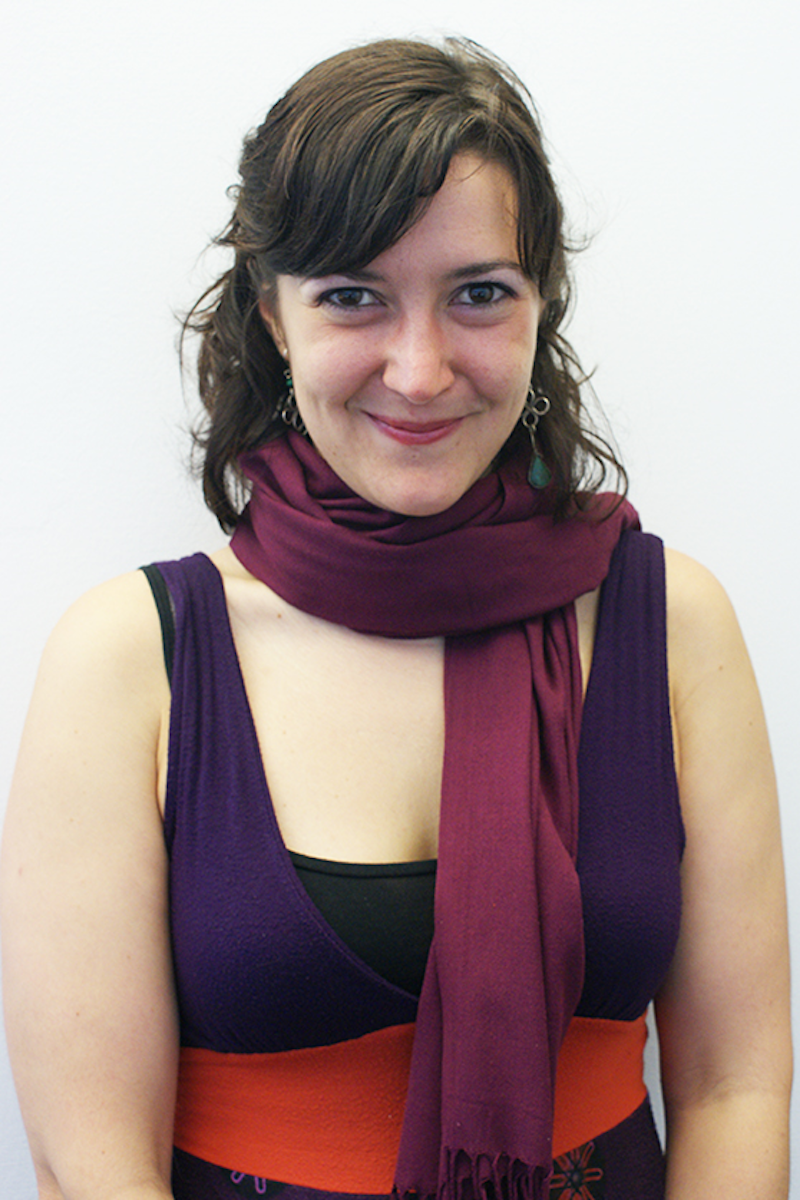
Re-coding Black Mirror
Wednesday January 30th, 2019
Ethical and Societal challenges of digital technologies
Computer science solutions against the misuse of technologies
Technological approaches to prevent Black Mirror's dystopian future

Wednesday January 30th, 2019
Black Mirror is a British sci-fi series directed by Charlie Brooker portraying a dystopian future emanating from the wide use of digital advancements. Even though Black Mirror’s episodes do not entirely rely on the widespread availability of existing technology, some of the advancements presented are not from such a distant future.
Re-coding Black Mirror aims at creating dialogue and connections between computer, data and social scientists and also activists and privacy advocates that are interested in the societal and ethical implications of digital technologies. In order to address emerging social phenomena from different perspectives, the workshop employs a novel interactive format, where researchers are invited to create futuristic scenarios as the ones depicted in Black Mirror exploring emerging societal and ethical concerns.
It will also be a forum for raising opportunities of networking with scholars from different fields to explore novel research problems that can be relevant to both the web and social science communities.
The workshop will take place on January 30th, 2019 at the La maison des arts (entrance through the main venue), as part of the Computers, Privacy & Data Protection 2019; Data Protection and Democracy Conference (CPDP2019).
More info TBA.
Given the novelty of the workshop format, we welcome submissions addressing two different issues, as explained in the brief summaries below. Possible submissions are not restricted to those examples, but works addressing those scenarios would be very much welcome too. You can also look at the submissions of the Re-coding Black Mirror 2017 and 2018 editions.
Works showing how the ongoing research in the web community could enable/lead to dystopic scenarios similar to the ones presented in Black Mirror episodes and also, how it could prevent/minimise such risks. For example:
How could web technologies be used to integrate information about another person from multiple online sources (digital footprinting), providing a mean for stalking or even blackmailing them S03E03 - Shut Up and Dance
How could web technologies be designed to prevent the abuse of user ratings based on the relations between people and information about their network/context? S03E01 - Nosedive
Works exploring the societal and ethical concerns emerging from digital technologies as presented in Black Mirror episodes. For example:
How do technological developments impact parental surveillance strategies and consequently the family environment? S04E02 - Arkangel
How does the normalization of surveillance through gamification change individuals' relationship with the surveillance apparatus? S02E02 - White Bear
Please submit your contribution to the workshop by October 1st 2018 (23:59 Hawaii time) through the easychair system.
We accept three categories of submissions:
We expect each paper to take as a starting point one futuristic scenario, either directly from Black Mirror or of a similar nature, as motivation for the work presented. You can also take a look at the Re:coding Black Mirror workshops in 2017 and 2018.
For further information about the workshop and the submission process please send your emails to pinelopi.troullinou@open.ac.uk
Kirstie Ball, University of St. Andrews
Valerio Basile, Sapienza University of Rome
Luca Belli, FGV Law School
Sara Degli Esposti, Coventry University
Stefan Dietze, University of Leibniz
Heidi Herzogenrath-Amelung, University of Westminster
Timothy Libert, Carnegie Mellon Universit
Kevin Macnish, University of Twente
Andrea Mannocci, The Open University
Diana Miranda, Keele University
Imge Ozcan, Vrije Universiteit Bruxelles
Giuseppe Rizzo, Politecnico di Torino
Angelo Antonio Salatino, The Open University
Diego Sempreboni, Kings College London
Gavin Smith, The Australian National University
Keith Spiller, University of Birmingham
Barry O'Sullivan, University College Cork
Daniel Trottier, Erasmus University Rotterdam
Lachlan Urquhart, University of Nottingham
Rosamunde Vanbrakel, Vrije Universiteit Bruxelles
Luca Viganò, Kings College London

Pinelopi is a Research Assistant at the Data Science Group of the Knowledge Media Institute, Open University (UK). Her research focuses on technology and society and more specifically on the surveillance occurring through the use of personal digital gadgets. Her Ph.D. research addressed issues of the subjective everyday surveillance using as a case study the smartphone devices. She specifically explored young users' articulation of the relationship with their smartphones and the negotiation with their surveillant aspects conducting focus groups with students at British universities and employing the use of visual vignettes. Pinelopi was Visiting Lecturer at the University of Westminster and Leeds Metropolitan University and Research Assistant for the fp7 project ICT ethics. She has been member of the organizing committee of international conferences, workshops and a summer school. She has presented her work in major conference mainly of the surveillance studies community and is co-editor of a special issue on surveillance and privacy at Westminster Papers in Communication and Culture.

Mathieu is a Professor of Informatics specialised in data analytics and semantic technologies at the Insight Centre for Data Analytics of the National University of Ireland Galway. He was previously Senior Research Fellow at the Knowledge Media Institute of the Open University, where he led the Data Science Group. Hes is leading research and development activities around the meaningful sharing and exploitation of distributed information. He has worked on applying the technologies coming out of his research, especially Semantic Web/Linked Data technologies, in various domains including medicine, education especially through learning analytics, Smart Cities and the Internet of Things, personal data management, etc.

is a Research Associate in the Data Science Group of the Knowledge Media Institute of the Open University. The core of her research is the exploitation of knowledge from heterogeneous data sources to improve tasks of intelligent systems, and is particularly focused on 2 application domains: (i) robots in smart cities and (ii) digital humanities. Ilaria was involved in the organisation of a number cross-disciplinary research events, as 2017 edition of Re-coding Black Mirror at ISWC2017, the 2017 Knowledge Capture conference (K-CAP2017), the Semantic Web Summer School (SSSW2015, SSSW2016) and the Linked Data for Knowledge Discovery workshops at ECML/PKDD (LD4KD2014 and LD4KD2015).